If you’re going through a website redesign, it’s time to really start thinking about your website’s ultimate “curb appeal” – your homepage.
It’s one thing to have a pretty homepage, but it’s another to make sure it accomplishes what you need it to. Let’s dive into a few elements that every website homepage needs to include. They’re basics, but if your mind is already swimming with the many details of a website redesign, these critical elements may fly under the radar.
Who Is Your Audience and What Are They Seeking?
The first question to ask is “Who is my audience?” Let’s start there. You could spend all the time in the world attracting everyone to your website, but would it be worth your time? Not at all. It’s much better to hone in on your “ideal” client and map your homepage around their needs. If you’re a B2B company, do you want to attract large players, or small start-ups? And who within those companies do you want to attract? If you’re a B2C company, who is your ideal buyer? These are vital questions to ask yourself.
Once you’ve narrowed down to your target audience, it’s time to ask another simple, but incredibly important question, “What are they seeking?” Do most of your clients want to buy, or are they typically in research mode when they land on your website? Depending on what they’re looking for, you can build a homepage that speaks to their needs – and makes sure they don’t have to dig for what they’re seeking.
Who Are You?
Once you’ve addressed who your audience is, and what they are looking for, it’s important to quickly and succinctly define who you are as a company and what makes you unique. This may seem obvious, but it’s surprising how many websites are out there that require you need to dig deep within the website to discover what it is exactly they do.
I often find myself looking up companies on LinkedIn because I know at least their LinkedIn profile will quickly and succinctly tell me who they are, what they do, and if they can provide a solution to my need. It’s key to make sure this information is located on your website’s homepage – this can make the difference of your potential clients staying on your website, or bouncing off to a competitor’s.
What Do You Do?
This brings us to the next important element of focus – what does your company do? This naturally ties in with the last question. Are you a software company that provides marketing solutions to small businesses? Are you a bakery that provides the freshest bread in your neighborhood? It’s important to advertise this information in a very clean, easy-to-understand way.
Keep in mind that one of the primary ways Google ranks websites is by relevancy. If your homepage only has a few phases and just images, it won’t be as easily identifiable to Google. Rather, try to have at least some substantial “About This Company…” content (even if it’s simply a solid paragraph) tied in with the imagery and design elements. Overall, if you make sure to mention what you do within your homepage, it will help advance the clients you’re looking for, and deter the clients you’re not.
What Do You Want Your Audience To Do?
From there, you are able to address the next question – when the right client lands on your website, what do you ultimately want them to do? Do you want them to watch a demo video, and then fill out an interest form (also known as a CTA, call-to-action)? Do you want them to pick up the phone and call you? Do you want them to purchase items directly from your website, or make a reservation? Depending on the action you ultimately want them to take (as long as it’s logical in filling their need), you need to make sure you’ve provided the right content and CTA’s on your homepage to accomplish that purpose. Nothing is more frustrating than making a decision to buy or move forward in the sales process, but you can’t figure out how to do that (easily) on the website.
Now that we’ve covered the importance of telling who you are and what you do, as well as the importance of making sure your audience has an easy path to purchase or learn more, let’s address a few loose ends.
What Else Do I Need to Know?
Q: What if most Google searches point people to a specific landing page, rather than my homepage?
A: First of all, that is a great problem to have! It’s important to invest in SEO, PPC, and other digital marketing strategies/tactics that will help drive traffic to your website. To address the question, every website will have landing pages that are deeper within the website itself that provide details on products, services, etc., but that does not negate the importance of building a strong homepage. The purpose of the homepage is to provide a quick overview of who you are, what you do, and to guide them to the details they need.
Q: Should I worry about where on the homepage my content lives – as long as it’s somewhere on the homepage, does it matter where?
A: Have you heard the phrase “above the fold”? It originally referred to the top half of a newspaper, and now it also refers to what users see as soon as they land on your website. I recommend trying to keep the most relevant, important information above the fold. And if it’s a responsive website, make sure you’ve seen the design and layout prior to your website launching.
Q: What are my final take-aways as I design my new website homepage?
A: Follow These Three Tips
- Avoid the Kitchen Sink: Keep in mind that you don’t need everything on the homepage – you’ll have plenty of space to put details about your products, services, processes, team, etc. on the internal pages. Just make sure you have the prominent information on the homepage.
- Don’t Make ‘Em Dig: Try to make things as easy as possible for your audience. Ideally, it should only take one click or two clicks to get to where you need to go – at least for the prominent items.
- Keep It Pretty: Overall, your website should be easy on the eyes – both in design and in layout. If you go to your website knowing only the information that your potential clients know, would you be able to find what you need quickly and efficiently? Do you make it easy to contact you for purchase, questions, or next steps?
Now that you know what you need to do in order to make your website homepage the best on the block (and also able to attract and convert the right leads), how do you feel? Any pressing questions?
Have you done this before and have additional advice for others? I’d love to hear your comments below!
{This article was originally posted on Deluxe’s Small Business blog. https://ww.deluxe.com/blog/how-to-get-the-ultimate-website-curb-appeal-and-generate-leads/}

